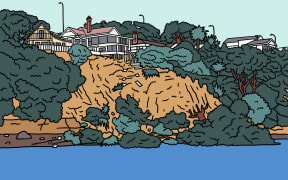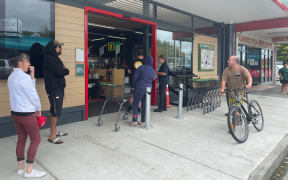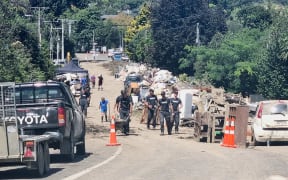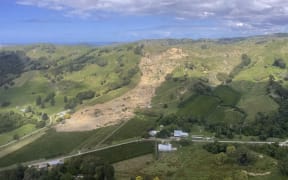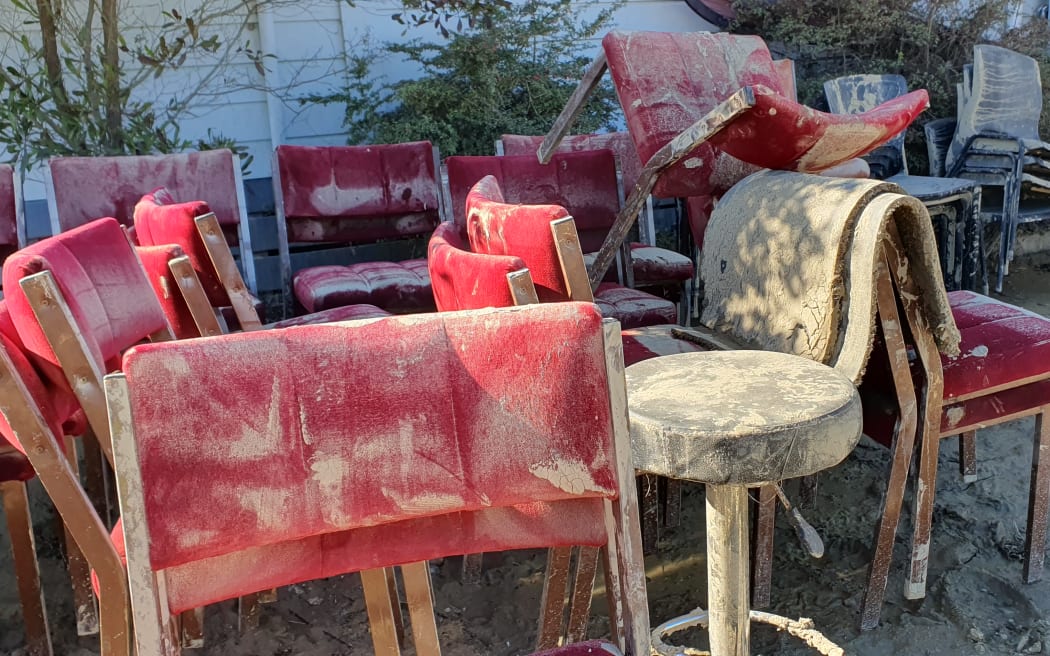
Ruined chairs outside the Tīnui pub, in Wairarapa, during the clean-up after Cyclone Gabrielle. Photo: RNZ/ Phil Pennington
Thousands of people displaced by Cyclone Gabrielle will need new forms of temporary accommodation, an official believes.
Planning is underway to house those displaced by Cyclone Gabrielle.
The government's temporary accommodation service was activated for households in Auckland earlier this month following the Anniversary Weekend floods.
That should soon become available to East Coast residents once the region moves into recovery mode.
Incident controller for MBIE's temporary accommodation service Steve Watson told Morning Report he was unsure of the numbers needing help, however, staff were working closely with Civil Defence staff to try and understand the level of demand.
He believed thousands would need to be accommodated.
"This is an unprecedented large event and we are upscaling significantly expecting large numbers to come through the service."
All forms of accommodation - motels, caravans and tents as well as prefabricated homes in temporary villages - were being considered.
The service being established was intended for families for the longer term as planning and actions moved from the first response phase.
Relocating tiny homes and prefabricated houses was "a prime consideration", Watson said.
Temporary villages of prefab houses had been provided after the Kaikōura earthquake and the Westport floods.
"That's a very likely scenario given what we know has happened in the region."
They took some time to establish, but there were systems and infrastructure that could be used to make it happen as quickly as possible.
Funding for the venture would need to come from the government.
Communication with the region was still limited but efforts were also being made to establish how much space was available in motels and hotels, Watson said.
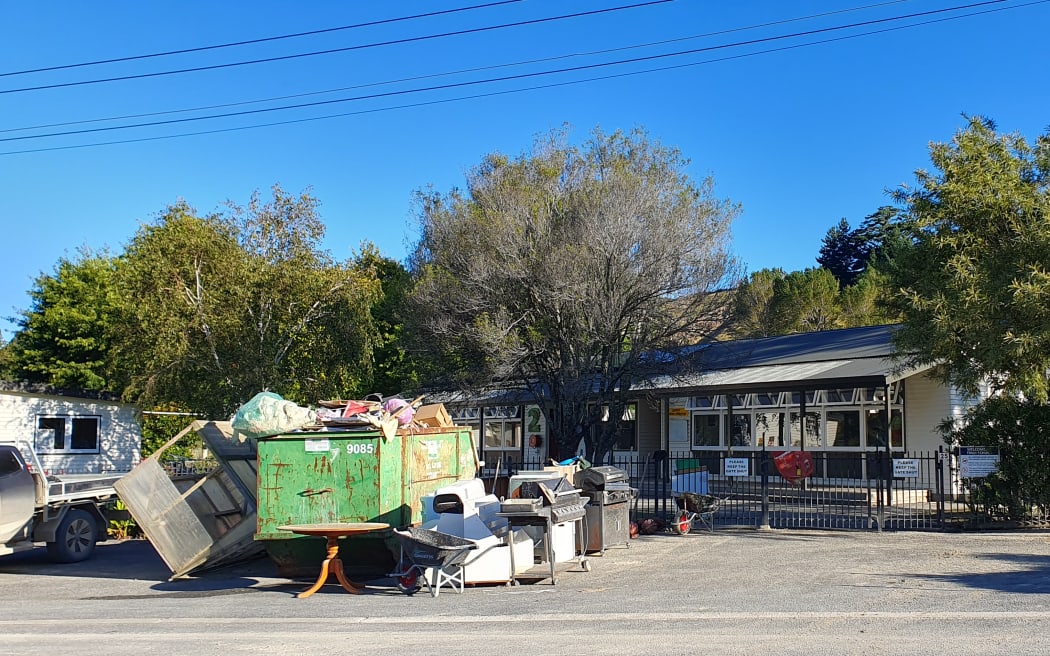
Damaged goods are piling up outside Tīnui School which is near the east coast of the North Island. Photo: RNZ/ Phil Pennington
Help for dealing with 'a pretty confusing system'
Those displaced or affected by the Auckland floods and Cyclone Gabrielle can get help with insurance claims through a new service from today.

Duncan Webb. Photo: RNZ / Samuel Rillstone
The government has launched the New Zealand Claims Resolution Service for homeowners to resolve issues and settle claims.
The service is modelled on two that were used during the Canterbury earthquakes.
Minister of Commerce and Consumer Affairs Duncan Webb said there was a free phone number, email and a website and in one area of the country, Māngere, in Auckland, staff were already on the ground.
It was important people tried to work with their insurance company first but if they were confused or unsure they could seek advice from the service.
"They'll give you the level of support you need, whether that be legal, whether it be technical engineering or whether it just be a mentor or navigator to help you through what can be a pretty confusing system from time to time."
In some situations a small amount of information might be enough for those using the service, however, in other cases people might need guidance with understanding engineering or quantity surveying reports or to help with dealing with an insurer.
Sometimes, early intervention with a third party was better to help customers navigate through the insurance process, Webb said.
While the scheme was being funded from existing budgets at present, the events in the North Island were complex and it might be necessary to seek specific funding for it, Webb said.
Insurance companies were supportive of the initiative, he said.
"Insurers do want to resolve claims properly and fairly but it's absolutely right that we have homeowners know that this is the case."
With regards to those people who threw out their household goods almost immediately after being flooded, Webb said there was nothing wrong with getting rid of goods such as soaked carpets that were a health hazard.
Insurers would act reasonably towards those people, he said.
To contact the service call 0508 624 327 or email contact@nzcrs.govt.nz.
Alerts from the National Emergency Management Agency for 20 February
- Keep up to date with advice from your local CDEM Group or from civildefence.govt.nz
- Floodwaters may be full of sewage, chemicals and other hazardous materials and should be avoided as much as possible
- Floodwater can carry bacteria that can contaminate food
- Protect yourself when cleaning up flood water and mud by wearing a properly fitted P2- or N95-rated mask, goggles, gloves, long pants, long-sleeved shirt, and gumboots or work shoes
- Throw away all food and drinking water that has come in contact with floodwater
- Do not eat garden produce if the soil has been flooded
- In power outages use torches instead of candles, and only use camp cookers and BBQs outdoors.
- Conserve water where you are advised to
- Check the location of pipes and cables before you dig; see Chorus' Before You Dig website and beforeudig.co.nz for all utilities
- The best way to assist in the response is through financial donations and NOT through donated goods.

